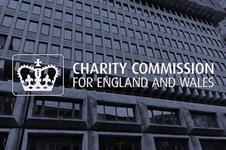The Charity Commission has criticised a charity where over £100,000 remains “unaccounted for” after money was transferred to a trustee’s private bank account.
The commission said that Birmingham-based One Community Organisation, which was set up to help disadvanaged young people in the city, was guilty of misconduct and/or mismanagement after concluding an 18-month statutory inquiry.
Its inquiry report also said the charity paid more than £1,000 into a trustee’s account without contacting the regulator, even after the commission had ordered that no payments could be made from the charity to board members without the commission’s authorisation.
Delroy Wilson, chair of trustees at the charity, told Third Sector the inquiry had not found any evidence of fraud, but acknowledged that trustees had to “put our hands up” to poor accounting.
The commission started looking into the charity after it reported a burglary at its offices and at the home of a trustee in 2019. The financial details subsequently provided by the charity “were not consistent with the commission’s records”, the regulator said in a statement, and it opened an inquiry in 2020.
When the commission reviewed One Community Organisation’s accounts, it identified a total of £280,000 paid from the charity to the chair of trustees between 2017 and 2021.
The trustee told investigators that, as the charity account had no bank card, he purchased items for the organisation from his own account and was reimbursed by the charity. But One Community Organisation was unable to provide supporting documents for more than £100,000 of this spending, which trustees said had gone on “sundry expenses”.
The commission concluded that trustees had failed to show that charity finances “were used for exclusively charitable purposes. This was misconduct and/or mismanagement in the administration of the charity and a breach of trustee duties.”
Initial inquiries also found that One Community Organisation sometimes worked outside of Birmingham and governance decisions were made without full involvement from trustees. The commission said “the vast majority of decisions were made by the chair and then relayed to the other trustees individually, often over the phone”.
In December 2020, the commission issued an order that the charity would need permission from the regulator before any money could be transferred to a trustee or related party. Despite this, the inquiry identified six payments made to the chair of trustees in December 2020 and January 2021, worth a total of £1,100.
The charity told the commission that this was “during an overlap” between accounts closing and opening.
The inquiry report said: “Charity trustees must comply with orders and direction of the commission. Failure to do so can be a criminal offence and in this case was misconduct and/or mismanagement in the administration of the charity.”
The commission also criticised the lack of any written arrangement between the charity and a private company run by the chair of trustees, which received purchases worth about £3,000 paid for from the charity’s funds. The regulator said it had seen evidence that the firm helped advertise and promote donations to One Community Organisation, but argued that trustees should have “formalised a written agreement” regarding the relationship.
Delroy Wilson confirmed he had spoken to the commission since the report was published and said: “The main thing we want to highlight is that there were no fraudulent activities there, which is very important.”
He argued that some issues had arisen because the charity started responding to demand from local people rather than waiting to organise formal programmes.
The failure to get a separate bank card for the charity was “the main thing which we got wrong, the main thing that, in hindsight, we would have done better”, Wilson said.
He added that the money that was unaccounted for related to paper receipts for petrol and other charity expenses “that got lost in the mix”, and said that, although the regulator accepted online documents, “we have a basket full of paper receipts but they just didn’t accept that, so it mounted up to £100,000 over three years.
“Every penny counts because it is people’s donations, we get that. But it is the paper receipts that they wouldn’t accept that accumulated so much.”
Wilson stressed there had not been any deliberate wrongdoing, but acknowledged that money going through a personal account “doesn’t look very professional, let’s just say that”.
He said the charity will continue its work and argued that the report “doesn’t show that there is any fraudulence or anything of that nature. It showed poor accounts and poor auditing, which we put our hands up to because it was something which we got involved in [but] didn’t plan it out as a project, we just got on with it.”
Amy Spiller, head of investigations at the Charity Commission, said: “The trustees’ failures in this case resulted in significant amounts of charity money being unaccounted for. This is unacceptable and amounts to misconduct and/or mismanagement.
“I hope that the commission’s intervention in this case means the charity is now able to deliver on its charitable purposes and improve the lives of the people it was set up to support.”
